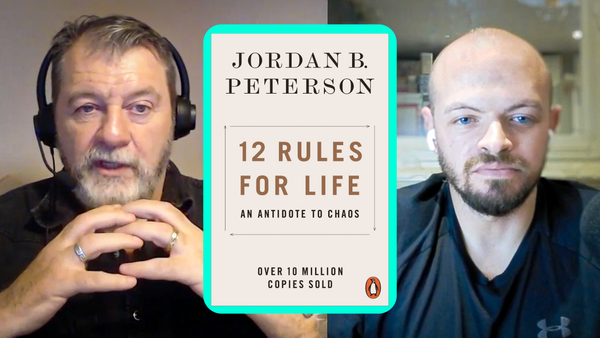Self-help books often promise transformative insights, offering rules and techniques to guide readers toward a better life. While these can be helpful, a closer look at how rigid adherence to such strategies affects mental health reveals potential risks. This is particularly evident in the critique of Jordan Peterson’s 12 Rules for Life and the broader implications of rule-governed behavior in psychotherapy and self-improvement.
📝 Notes from the Video
The Problem with Rigid Rules
Jordan Peterson’s 12 Rules for Life opens with a foreword that likens its rules to the Ten Commandments. While this analogy highlights the significance of the rules, it also raises concerns. The foreword valorizes rigid rule-following behavior but fails to address a well-documented psychological phenomenon: the dangers of rule-governed behavior. Research in modern behavioral therapy has repeatedly shown that absolute adherence to rules can lead to rigidity and a lack of coping flexibility, especially under stress or emotional distress.
When people face anxiety, depression, or anger, they often cling more tightly to prescribed coping strategies, applying them in a black-and-white manner. This rigidity can backfire, exacerbating their difficulties rather than alleviating them.
Coping Strategies Gone Awry
In therapy, clients frequently bring maladaptive coping strategies, often drawn from self-help books or personal experimentation. For instance, one of Peterson’s rules—"Stand up straight with your shoulders back"—might seem universally helpful. However, for individuals with social anxiety, attempting to adopt confident body language can inadvertently increase self-focused attention. This heightened self-awareness often worsens anxiety in social situations.
Similarly, techniques like controlled breathing, mindfulness, or “faking it till you make it” can have unintended consequences. While these approaches may work in low-stress situations, they risk amplifying distress when applied rigidly without considering context.
The Missing Ingredient: Reflection and Flexibility
A significant shortcoming of many self-help books is their prescriptive, one-size-fits-all approach. They often fail to encourage readers to critically evaluate the techniques they’re using. In cognitive-behavioral therapy (CBT), therapists help clients assess the pros and cons of their coping strategies, fostering a nuanced understanding of when and how to adapt them.
For example, mindfulness can be a powerful tool, but it’s essential to distinguish between healthy mindfulness and practices that might inadvertently increase anxiety. Similarly, standing up straight might project confidence in some situations but become counterproductive in others. Reflection and critical thinking are crucial to identifying the best approach for a given context.
Building Emotional Resilience
Genuine emotional resilience doesn’t come from following a rigid set of rules. Instead, it stems from developing coping flexibility—the ability to adapt strategies to different situations. Research shows that resilient individuals use a variety of techniques, tailoring their responses to the challenges they face. This adaptability is a skill that requires practice and reflection.
The Socratic method, often employed in therapy, aligns with this approach by encouraging individuals to think critically about their beliefs and actions. Instead of passively accepting rules, the focus shifts to questioning, evaluating, and refining strategies. This process fosters self-awareness and adaptability, equipping individuals to handle life’s complexities.
Final Thoughts
While self-help books can provide valuable insights, it’s essential to approach them with a critical mindset. Rigid adherence to prescriptive rules can hinder personal growth, especially in high-stress situations. Instead, prioritize flexibility, reflection, and context-awareness in your self-improvement journey. Emotional resilience isn’t about following the perfect rule—it’s about learning to think for yourself and adapt to the ever-changing demands of life.
Watch the video to explore this topic in depth and learn how to cultivate genuine coping flexibility. Let’s move beyond the Ten Commandments of self-help and embrace a more thoughtful, adaptive approach to personal growth.
